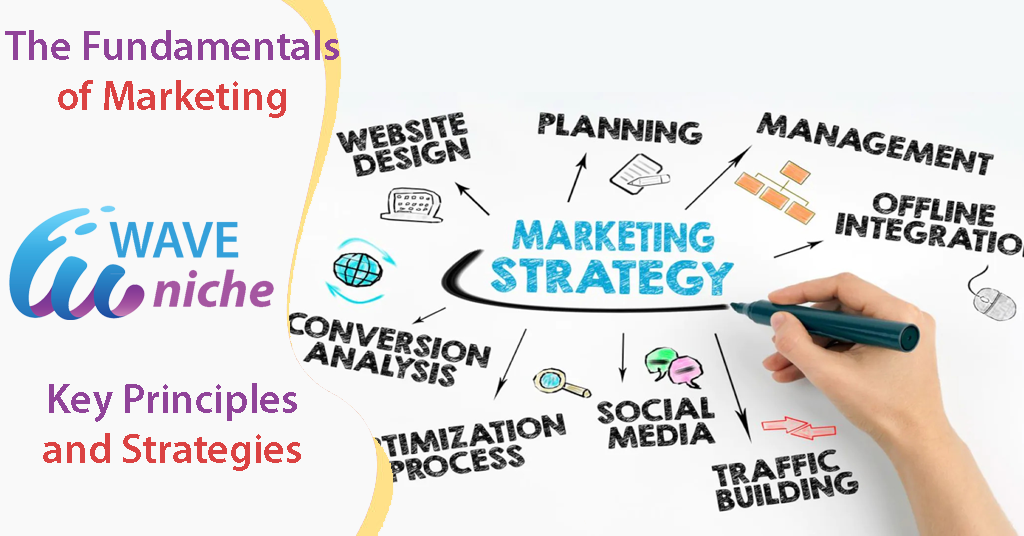There are several factors that contribute to the success of an online business. Here are some key ones:
1. A clear business plan:
A clear and well-defined business plan is essential for any online business. This plan should outline your goals, target audience, marketing strategies, revenue projections, and other key aspects of your business.
A clear business plan is a comprehensive document that outlines the goals, strategies, and operations of a business. It typically includes the following elements:
- Executive summary: A brief overview of your business plan, including your business idea, goals, and target audience.
- Business description: A detailed description of your business, including your products or services, target market, and competitive advantages.
- Market analysis: A thorough analysis of your industry, target market, and competition, including market size, growth potential, and trends.
- Marketing and sales strategies: A detailed plan for how you will promote and sell your products or services, including your marketing channels, pricing strategy, and sales tactics.
- Operations and management plan: A plan for how you will manage your business operations, including your organizational structure, staffing plan, and day-to-day processes.
- Financial projections: A detailed financial analysis of your business, including revenue projections, startup costs, and ongoing expenses.
- Risk analysis: An evaluation of the potential risks and challenges facing your business, including competition, regulatory issues, and economic factors.
A clear business plan is essential for securing funding, attracting customers, and guiding the growth and development of your business. It should be well-researched, concise, and easy to understand, and should be reviewed and updated regularly as your business evolves.
2. A user-friendly website:
Your website is your primary storefront, so it’s important to create a user-friendly and visually appealing website that is easy to navigate and provides a seamless user experience.
A user-friendly website is essential for any online business. Here are some key elements of a user-friendly website:
- Clear and intuitive navigation: Your website should have a clear and intuitive navigation menu that allows users to easily find the information they’re looking for.
- Fast loading time: Users expect websites to load quickly, so make sure your website is optimized for speed and performance.
- Mobile optimization: With more and more users accessing websites on their mobile devices, it’s important to have a website that is optimized for mobile devices.
- Consistent branding: Your website should reflect your brand identity, with consistent colors, fonts, and imagery.
- Clear calls-to-action: Your website should have clear calls-to-action (CTAs) that encourage users to take specific actions, such as making a purchase or filling out a form.
- High-quality visuals: High-quality visuals, such as images and videos, can help make your website more engaging and visually appealing.
- Easy-to-read content: Your website content should be easy to read, with clear headings, bullet points, and short paragraphs.
- Contact information: Make sure your contact information is easy to find and includes phone numbers, email addresses, and social media links.
By focusing on these key elements, you can create a user-friendly website that provides a seamless user experience and helps drive conversions and sales for your online business.
3. High-quality products or services:
To succeed online, you need to offer high-quality products or services that meet the needs and expectations of your target audience.
Offering high-quality products or services is a crucial factor for the success of any online business. Here are some key aspects of high-quality products or services:
- Meeting customer needs: Your products or services should meet the needs and expectations of your target audience. Conduct market research to identify customer pain points and develop products or services that solve those problems.
- Reliable and consistent: Your products or services should be reliable and consistent, with a high level of quality and performance. Make sure you have rigorous quality control processes in place to ensure consistency.
- Competitive pricing: Your pricing should be competitive and reflect the value of your products or services. Consider your production costs, market demand, and competitor pricing when setting your prices.
- Strong branding: Your products or services should reflect your brand identity and values, with consistent branding across all marketing channels.
- Excellent customer service: Providing excellent customer service is essential for building customer loyalty and driving repeat business. Make sure you have a dedicated customer support team that can quickly respond to customer inquiries and resolve issues.
- Innovation: To stay competitive, you need to continuously innovate and improve your products or services based on customer feedback and industry trends. Keep a close eye on your metrics and adjust your strategies accordingly.
By focusing on these key aspects, you can develop high-quality products or services that meet the needs and expectations of your target audience, build customer loyalty, and drive sales for your online business.
4. Effective digital marketing:
To attract customers and generate sales, you need to have an effective digital marketing strategy that includes search engine optimization (SEO), social media marketing, email marketing, and other digital channels.
Effective digital marketing is essential for promoting your online business and driving traffic to your website. Here are some key elements of effective digital marketing:
- Search engine optimization (SEO): SEO involves optimizing your website and content to rank higher in search engine results pages (SERPs). This can help increase organic traffic to your website.
- Pay-per-click (PPC) advertising: PPC advertising involves paying for ad placements on search engines, social media platforms, and other websites. This can help drive targeted traffic to your website and increase conversions.
- Content marketing: Content marketing involves creating high-quality content, such as blog posts, videos, and infographics, to attract and engage your target audience. This can help increase brand awareness and drive traffic to your website.
- Social media marketing: Social media marketing involves using social media platforms, such as Facebook, Instagram, and Twitter, to promote your brand and engage with your target audience. This can help increase brand awareness and drive traffic to your website.
- Email marketing: Email marketing involves sending promotional emails to your email subscribers to promote your products or services. This can help drive sales and build customer loyalty.
- Influencer marketing: Influencer marketing involves partnering with influential individuals in your industry to promote your brand and products. This can help increase brand awareness and drive sales.
By incorporating these key elements into your digital marketing strategy, you can effectively promote your online business, drive traffic to your website, and increase conversions and sales. It’s important to continuously monitor and adjust your strategies based on your metrics and customer feedback to ensure the best possible results.
5. Reliable and secure payment processing:
A secure and reliable payment processing system is essential for any online business. Make sure you choose a trusted payment processor that provides a seamless checkout experience for your customers.
Reliable and secure payment processing is crucial for any online business to build trust with customers and prevent fraud. Here are some key aspects of reliable and secure payment processing:
- PCI compliance: The Payment Card Industry Data Security Standard (PCI DSS) is a set of security standards that online businesses must follow to ensure secure payment processing. Make sure you comply with these standards to protect customer data.
- Secure payment gateways: Choose a reputable payment gateway provider that offers secure payment processing, such as PayPal, Stripe, or Square. These providers use encryption and other security measures to protect customer data.
- Multiple payment options: Offer multiple payment options, such as credit cards, debit cards, PayPal, and other digital payment methods, to make it easy for customers to pay for your products or services.
- Simple checkout process: Make sure your checkout process is simple and easy to follow, with clear instructions and minimal steps. This can help reduce cart abandonment and increase conversions.
- Fraud prevention: Implement fraud prevention measures, such as address verification, IP tracking, and risk scoring, to prevent fraudulent transactions and protect your business and customers.
- Refund and chargeback policies: Have clear refund and chargeback policies in place to protect your customers and your business in case of disputes.
By focusing on these key aspects, you can ensure reliable and secure payment processing for your online business, build trust with customers, and prevent fraud. It’s important to regularly monitor and update your payment processing systems to ensure they are up-to-date and secure.
6. Strong customer support:
Providing excellent customer support is critical for building customer loyalty and driving repeat business. Make sure you have a dedicated customer support team that can quickly respond to customer inquiries and resolve issues.
Strong customer support is a critical factor for the success of any online business. Here are some key aspects of strong customer support:
- Prompt response times: Customers expect quick and efficient support, so it’s important to respond to inquiries and issues as quickly as possible. Consider setting up automated responses to acknowledge customer inquiries and provide a timeline for a response.
- Multiple support channels: Offer multiple support channels, such as email, phone, chat, and social media, to make it easy for customers to reach you. Make sure each channel is staffed with knowledgeable and friendly customer support representatives.
- Personalized support: Tailor your support to each customer’s needs and preferences. Use customer data to provide personalized recommendations and solutions.
- Knowledgebase and FAQs: Provide a comprehensive knowledgebase and FAQ section on your website to help customers find answers to common questions and issues. This can help reduce the workload on your support team and improve the customer experience.
- Continuous improvement: Regularly collect feedback from customers to identify areas for improvement in your support processes and systems. Use this feedback to make changes and improve the customer experience over time.
By focusing on these key aspects, you can provide strong customer support that meets the needs and expectations of your customers, builds loyalty, and drives sales for your online business. It’s important to continuously monitor and adjust your support processes and systems to ensure the best possible results.
7. Continuous improvement:
To stay competitive and successful, you need to continuously improve your products, services, and marketing strategies based on customer feedback and industry trends. Keep a close eye on your metrics and adjust your strategies accordingly.
Continuous improvement is an essential factor for the success of any online business. Here are some key aspects of continuous improvement:
- Data analysis: Regularly collect and analyze data on your website traffic, customer behavior, sales, and other metrics to identify areas for improvement. Use this data to make informed decisions and prioritize improvements.
- User feedback: Collect feedback from customers through surveys, reviews, and other channels to understand their needs and preferences. Use this feedback to make improvements to your products, services, and customer support processes.
- A/B testing: Conduct A/B testing to test different versions of your website, marketing campaigns, and other strategies to identify the most effective approaches.
- Employee training: Provide ongoing training and professional development opportunities for your employees to improve their skills and knowledge. This can help them better serve customers and contribute to the success of your business.
- Innovation: Encourage innovation and creativity among your employees to generate new ideas and approaches to improve your business.
By focusing on these key aspects, you can continuously improve your online business to better meet the needs and preferences of your customers and stay ahead of the competition. It’s important to regularly review and adjust your strategies based on data, feedback, and market trends to ensure the best possible results.
By focusing on these key factors, you can create a strong foundation for your online business and increase your chances of success.




